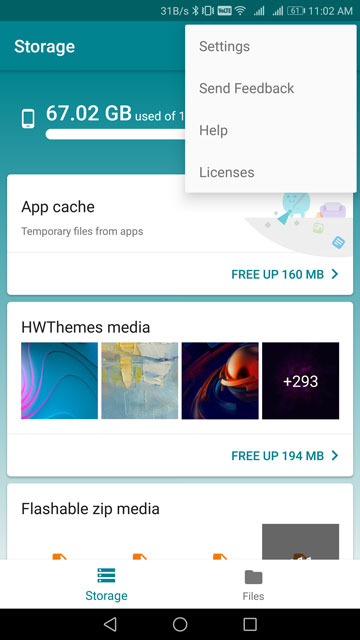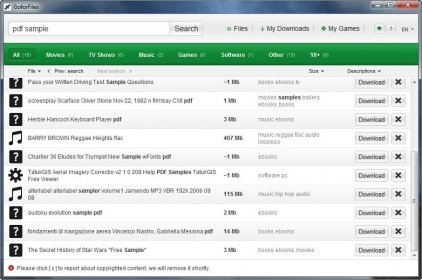GetGo Download Manager can store login credentials for downloading files from password protected websites. It can also preview image files before downloading them, run downloads on a schedule, and capture videos from video-streaming websites. Windows is the only operating system that GetGo Download Manager works on. BitRaser for File permanently erases data from a rage of data storage devices beyond the scope of recovery. When you plan to dispose off your computer, laptop or any other storage device, or donate it or sell it, this application is extremely useful to avert misuse of information that are still present on the hard drive of your system.
NHTSA File Downloads
Current path: Home /| Path | Size | Updated |
|---|---|---|
| AV TEST Initiative/ | ||
| AdSlicks/ | ||
| CAFE/ | ||
| CIOT/ | ||
| CISS/ | ||
| CPSVideos/ | ||
| CRSS/ | ||
| CURTAIN/ | ||
| Child_Seat_Usage_Surveys/ | ||
| Counterfeit_Air_Bags/ | ||
| DON/ | ||
| ERR/ | ||
| Events/ | ||
| FARS/ | ||
| GES/ | ||
| Impaired_Driving/ | ||
| MHDVD_Files/ | ||
| Manufacture/ | ||
| MfrMail/ | ||
| NASS/ | ||
| NCAP/ | ||
| NHTSA 50 Years/ | ||
| NRD/ | ||
| NTI/ | ||
| NiTS/ | ||
| Ped/ | ||
| Pedestrian Safety/ | ||
| Rural Traffic Safety/ | ||
| Safercar/ | ||
| THOR_05F_Drawing_Package/ | ||
| THOR_50M_Drawing_Package/ | ||
| TQ10-001/ | ||
| TQ10-002/ | ||
| Test/ | ||
| Test52912/ | ||
| Videos/ | ||
| heastroke/ | ||
| odi/ | ||
| poster_fair/ | ||
| recalls/ | ||
| v2v/ | ||
| IMPORTANT- PLEASE READ.HTML | 1 KB | 03/13/2020 11:00:56 AM |
How to download files in Go
The best way to learn a new programming language is to write small utility programs. Let’s write one such program to download files via http in Go.

I am going to show the entire source code first and then walk through each section of it.
Download a file over http
main function
Since this is a command line tool, we start with the package main and function main. We ask the user to pass the url to download and the filename to save it under as command line arguments. We can access them using the os.Args slice.
We just pass the url and filename to the DownloadFile function. The only return value from this function is an error, which we display to the user and exit.
DownloadFile function
Now if we look at the DownloadFile function, this is pretty simple.

Download Files For Pc
- We create a new file at the filepath location
- Then we use
http.Get()to do a GET request to the url. - Finally we use
io.Copy()to read from theresp.Bodyinto the newly created fileout. - We make sure to close both the file and the response.
Now how can we say that it is memory efficient and doesn’t download and store the entire file in memory? For that we can just look at the source code of io.Copy() and follow along till we reach copyBuffer(). Here we can see that it create a buffer []byte array of size 32kb and uses that to read from the source Reader to destination Writer.
Better DownloadFile
This does work well, but for this tool to be a bit more useful, it needs to show some output to the user. Some indication that it just downloaded a file successfully. Especially if the file is a few hundreds of MB in size, we don’t want the command to keep waiting.
Let’s also add in an extra feature of first downloading to a temporary file so that we don’t overwrite an old file till the new file is completely downloaded.
WriteCounter to count bytes
First off we are going to create a struct which can be used to count the number of bytes which is written. It has only a simple field of uint64. But what is interesting are the two methods that we are going to write for this struct.
Write() and PrintProgress()
We are implementing the Write method for this struct, which makes this object of the io.Writer interface. We can pass this object to any function which requires a io.Writer interface. And the Write function just increments the counter by the size of the bytes written into it and then calls the PrintProgress method.
The PrintProgress method is just an utility method which prints how many bytes were written. It uses the go-humanize package to convert the number of bytes into a human readable number.
DownloadFile function
Now there is just one minor change in the DownloadFile function. Instead of just passing resp.Body into io.Copy, we are creating an io.TeeReader which takes in the counter struct we created earlier.The io.TeeReader, requires one Reader and one Writer, and it returns a Reader by itself. It reads from resp.Body, writes to the counter, and then passes those bytes to the outer io.Copy function. This is a common pattern followed in Unix pipes.

Other than the TeeReader, we are creating a temporary file to download our file, so that we don’t overwrite an existing file before the entire file is downloaded. Once the download is complete, we rename the file names and complete our program.
If you run the entire code to download a large file, this is how it shows up on the terminal.
Google Files Go For Pc Free Download
The source code of both the programs are available on this gist link.
Files Go For Pc Free Download
Conclusion
Files Go For Pc

Free Music Files For Download
This shows, how age-old patterns like the unix pipes and tee commands are still relevant and we can build simple tools using those patterns. But more important is the way interfaces are implemented in golang, which allows you to create new structures like the WriteCounter and pass them to any place which takes in an io.Writer interface.